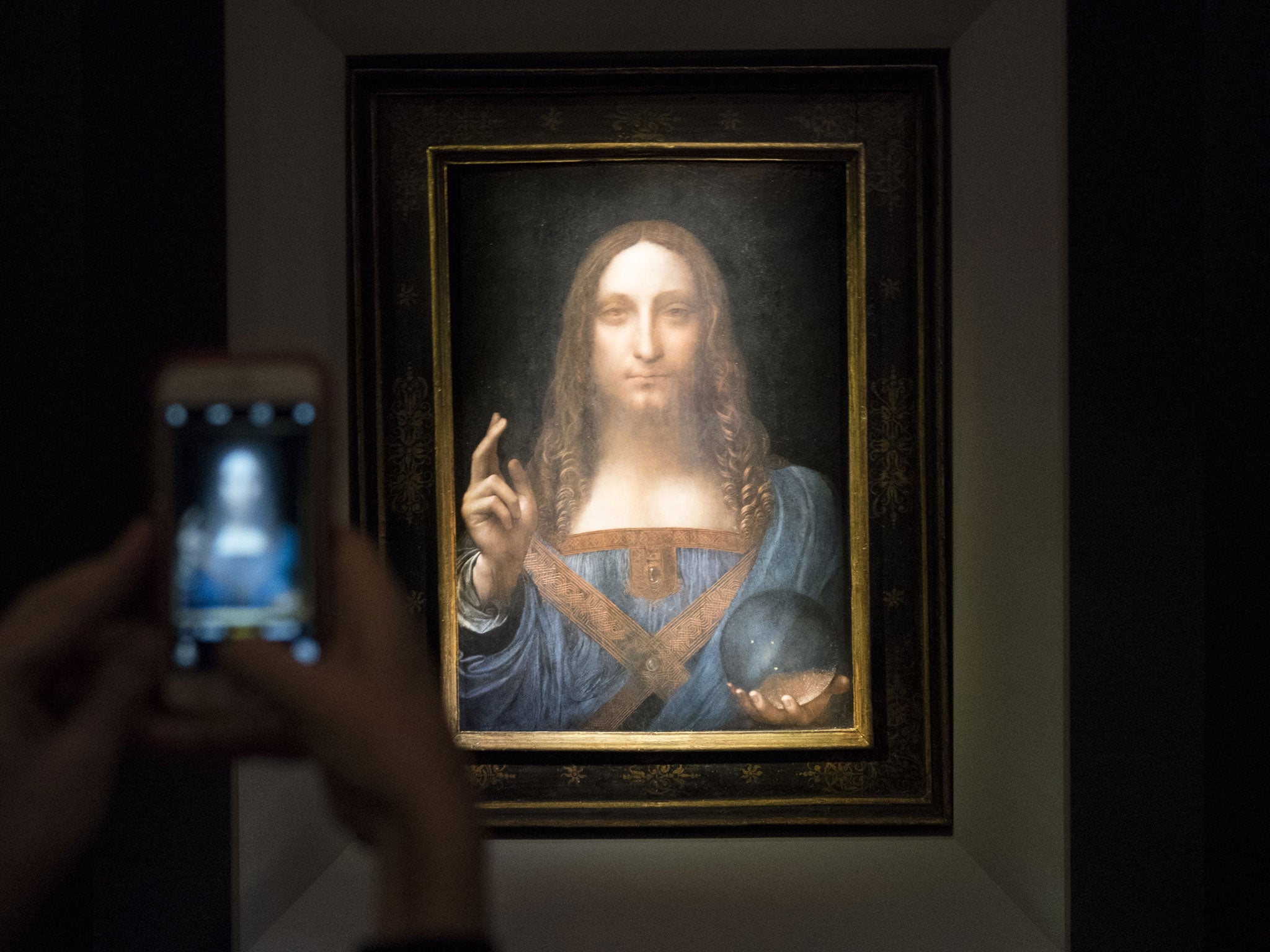Mystery over world’s most expensive painting solved as art dealer reveals it is sitting on Saudi prince’s yacht
Since its rediscovery in the early 21st Century, doubts over authenticity have dogged the painting ‘Salvator Mundi’

Your support helps us to tell the story
From reproductive rights to climate change to Big Tech, The Independent is on the ground when the story is developing. Whether it's investigating the financials of Elon Musk's pro-Trump PAC or producing our latest documentary, 'The A Word', which shines a light on the American women fighting for reproductive rights, we know how important it is to parse out the facts from the messaging.
At such a critical moment in US history, we need reporters on the ground. Your donation allows us to keep sending journalists to speak to both sides of the story.
The Independent is trusted by Americans across the entire political spectrum. And unlike many other quality news outlets, we choose not to lock Americans out of our reporting and analysis with paywalls. We believe quality journalism should be available to everyone, paid for by those who can afford it.
Your support makes all the difference.The mystery of the location of one of the world’s most expensive paintings, attributed to Leonardo da Vinci, has apparently been solved after concerns were raised last year.
Salvator Mundi, depicting Christ, became the most expensive painting sold at public auction, going for $450m (£350m) in 2017.
Just 14 paintings had been believed to exist by Leonardo, so the 2011 authentication of a previously unknown painting by the renaissance master, almost 500 years after his death, was a bolt out of the blue for the art world.
But just as it had suddenly materialised, the painting disappeared shortly after the sale.
The auction house Christie’s confirmed the Abu Dhabi Department of Culture and Tourism had taken possession of it.
The New York Times, citing FBI files, subsequently identified the buyer as the Saudi prince Bader bin Abdullah, who they claimed had been acting as a proxy for the crown prince Mohammed bin Salman (MBS).
The Louvre Abu Dhabi was then due to unveil the painting in September 2018, but the event was cancelled with no explanation.
This year it emerged the Louvre in Paris wanted to borrow Salvator Mundi for a Leonardo exhibition in Paris, but had not heard from “the owner”.
While the painting’s whereabouts became a source of bewilderment, a simultaneous debate over the painting’s authenticity has kept Salvator Mundi in the headlines around the world.
One Telegraph article suggested the reason the painting had been pulled from the Paris exhibition was that the Louvre wanted to attribute the painting to “the workshop of Leonardo da Vinci”, instead of solely to the painter himself, a move which would have considerably undermined the painting’s value.
But now the art journalist Kenny Schachter, writing on website Artnet News, offers answers as the to the painting’s location.
Salvator Mundi is apparently on a boat.
“In the murky Middle Eastern waters nothing is quite crystal clear,” Mr Schachter writes, adding that according to his sources the painting was “whisked away in the middle of the night on MBS’s plane and relocated to his yacht, the Serene”.
He suggests the €500m (£445m) superyacht – which cost only slightly more than the painting itself – is being used as the artwork’s floating storage unit until the completion of a multi-billion dollar development at the Al-Ula site in the Medina region of Saudi Arabia which will be several times the size of the Louvre Abu Dhabi and has been described as an “art Disneyland”.
Writing about the state the painting was found in when it was rediscovered this century, Mr Schchter writes: “After the painting was initially found in shards – it had split into five discrete pieces and had to be reattached during restoration ... and its surface literally shaved before being nearly fully restored and repainted – what harm could the occasional splash of seawater do?”
Join our commenting forum
Join thought-provoking conversations, follow other Independent readers and see their replies
Comments